Universitas Negeri Semarang (UNNES) is a public university in Semarang, Central Java, Indonesia. Founded in 1965, the university was originally a teacher training college. After years of development, it has become a comprehensive university covering multiple disciplines. The following is some detailed information about Universitas Negeri Semarang:
Overview
Name: Universitas Negeri Semarang (UNNES)
Location: Semarang, Central Java, Indonesia
Nature: Public University
Establishment: 1965
Mission and Vision
Mission: To support social progress and national development by providing high-quality education, research and social services to cultivate graduates with professional competence and moral responsibility.
Vision: To become an internationally recognized university that achieves excellence in education, research and social services, especially in the fields of sustainable development, innovation and environmental protection.
Disciplines and Courses
Colleges: UNNES has several colleges and departments covering a wide range of subject areas, including but not limited to:
College of Teacher Training and Education
College of Mathematics and Natural Sciences
College of Social Sciences
College of Languages and Arts
College of Economics and Business
College of Engineering
College of Health Sciences
College of Sports and Health
College of Vocational Education
College of Information and Communication Technology
Courses: Offers courses at the undergraduate, master and doctoral levels. Courses cover a wide range of fields from education, mathematics and natural sciences, social sciences, languages and arts, economics and business to engineering, health sciences, sports and health, vocational education and information and communication technology.
Advantages and Features
Academic Reputation: UNNES enjoys a good academic reputation in Indonesia, especially in the fields of education, mathematics and natural sciences and social sciences.
Research and Innovation: Attaches importance to scientific research and technological innovation, has multiple research centers, and supports interdisciplinary research projects.
International Cooperation: Established cooperative relations with many international universities and research institutions, providing international exchanges, joint research and dual degree programs.
Environmentally Friendly: UNNES is committed to becoming a green university, focusing on environmental protection and sustainable development, and has implemented a number of environmental protection measures on campus.
Faculty: It has a team of highly qualified teachers, many of whom have rich experience and research results in their respective fields.
Well-equipped facilities: The campus is equipped with modern teaching and research facilities, including libraries, laboratories, sports facilities and student dormitories.
Community service: Actively participate in community service and support local development through various projects, especially in education, health and social welfare.
Admission requirements
Undergraduate: Usually requires completion of high school education and pass entrance examinations or qualification reviews. For international students, language scores (such as TOEFL or IELTS) may also be required.
Postgraduate: Usually requires an undergraduate degree and may need to pass specific entrance examinations or interviews. Specific admission requirements may vary depending on the course.
Accreditation and recognition
UNNES is recognized by the Indonesian government and the courses it offers meet the country's educational standards. Many professional courses have also obtained relevant industry and international certifications.
International rankings
In the QS World University Rankings, UNNES is usually ranked between 1001-1200 in the world.
UNNES also has a certain ranking in the QS Asian University Rankings.
In the QS subject rankings, UNNES has a certain reputation in certain fields such as education, mathematics and natural sciences.
Campus Facilities
Facilities: Provide comprehensive teaching and research facilities, including libraries, laboratories, computer centers, sports facilities and student dormitories.
Accommodation: Provide dormitory facilities for students, especially for out-of-town students.
Extracurricular Activities: Encourage students to participate in various extracurricular activities such as student clubs, cultural festivals, sports events, etc. to promote personal all-round development.
Social Impact
UNNES has made important contributions to the socio-economic development of Semarang City and the entire Central Java Province through its educational projects, research and social service activities. Many alumni hold important positions locally and nationally, and have a positive impact on local and national development.
Other Information
UNNES actively participates in international organizations and projects and has cooperative relations with universities in many countries and regions.
The school also regularly holds international conferences and seminars to promote academic exchanges and international cooperation.
-
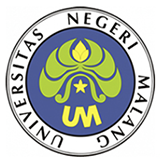
Universitas Negeri Malang
-
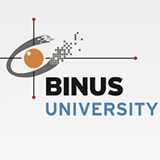
Binus University
-

Gadjah Mada University
-
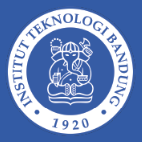
Bandung Institute of Technology
-
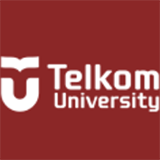
Telkom University
-

University of Indonesia
-
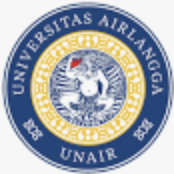
Airlangga University
-
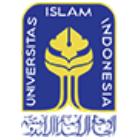
Universitas Islam Indonesia
-
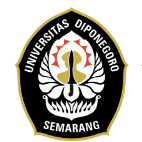
Diponegoro University
-
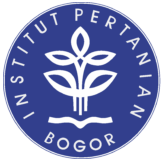
IPB University
-

Mesoamerican University
-

Istmo University
-

Mariano Galvez University of Guatemala
-

Regional University of Guatemala
-

Galileo University
-

Francisco Marroquín University
-

Rafael Landívar University
-

University of the Valley of Guatemala
-

University of San Carlos of Guatemala
-

Technological Institute of Tlaxcala Plateau
-

Golfo University
-

Technological University of South Sonora
-

Technological University of Huejotzingo
-

Tizimín Institute of Technology
-

Chilpancingo Institute of Technology

